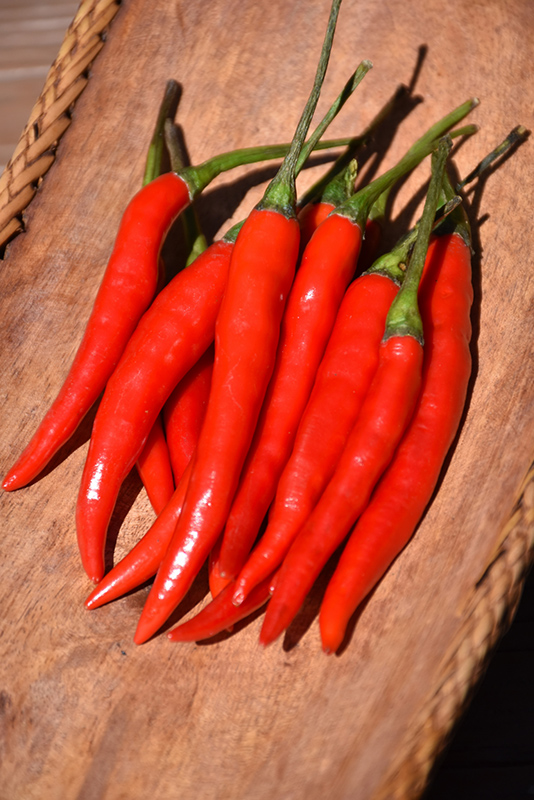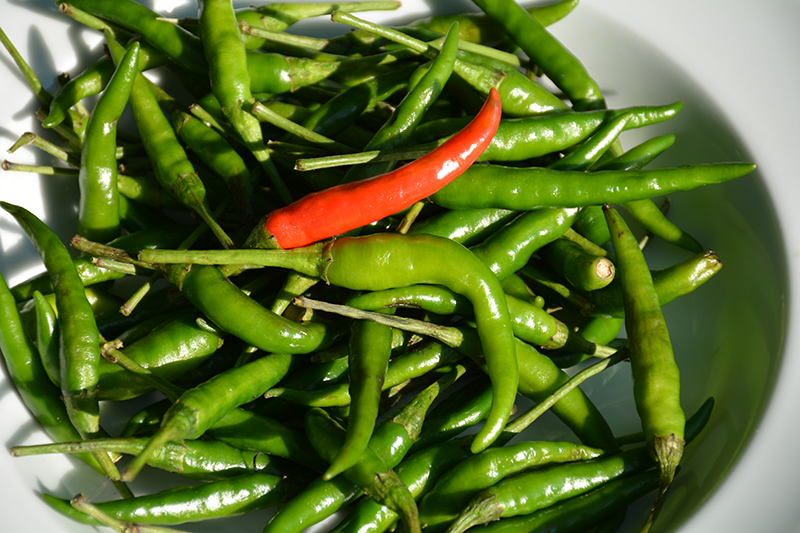Height: 18 inches Spacing: 24 inches
Sunlight:
Hardiness Zone: (annual) Group/Class: Hot Thai Description: A fiery hot and stunning selection; small, elongated fruit emerges green and ripens to bright red; great for hot sauces, stir fry, pickling or adding a spicy kick to salads; performs well in patio containers and small gardens Edible Qualities Thai Hot Pepper is an annual vegetable plant that is typically grown for its edible qualities, although it does have ornamental merits as well. It produces small green pointy peppers (which are technically 'berries') with red flesh which are typically harvested when mature. The fruit will often fade to red over time. The peppers have a fiery taste and a crunchy texture. The peppers are most often used in the following ways: Planting & Growing Thai Hot Pepper will grow to be about 18 inches tall at maturity, with a spread of 24 inches. When planted in rows, individual plants should be spaced approximately 24 inches apart. This vegetable plant is an annual, which means that it will grow for one season in your garden and then die after producing a crop. This plant is quite ornamental as well as edible, and is as much at home in a landscape or flower garden as it is in a designated vegetable garden. It should only be grown in full sunlight. It does best in average to evenly moist conditions, but will not tolerate standing water. It is not particular as to soil pH, but grows best in rich soils. It is somewhat tolerant of urban pollution. Consider applying a thick mulch around the root zone over the growing season to conserve soil moisture. This is a selected variety of a species not originally from North America, and it is considered by many to be an heirloom variety. Thai Hot Pepper is a good choice for the vegetable garden, but it is also well-suited for use in outdoor pots and containers. It is often used as a 'filler' in the 'spiller-thriller-filler' container combination, providing a mass of flowers against which the thriller plants stand out. Note that when growing plants in outdoor containers and baskets, they may require more frequent waterings than they would in the yard or garden.
A NetPS Plant Finder tool![]()
![]()
![]()
![]()
![]()
![]()
![]()


